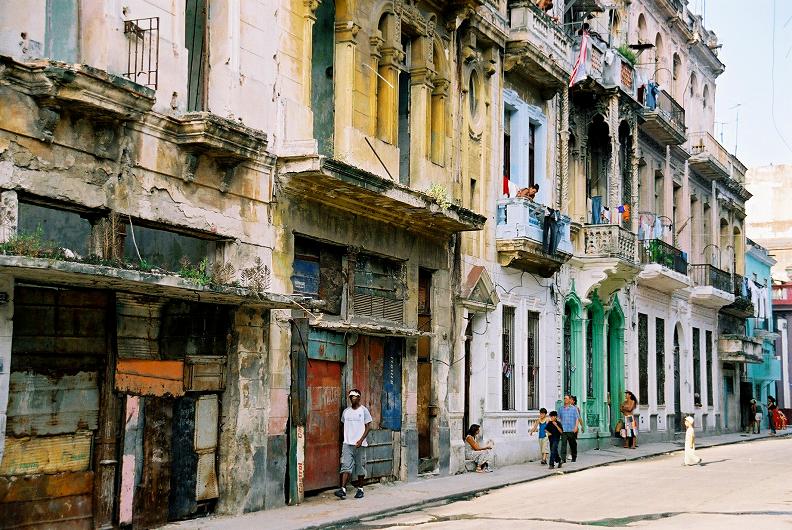Leerlo en Español
Island, what happened to you?
Who changed the spring?
Who shut the door?
What ship left you alone?
Island, they have changed your clothes
They have confused decency
They have trafficked your innocence
They have shit on your equality and mine.
Island, by Lien Y Rey
Somos+, Gretther Yedra Rodriguez, 29 March 2017 — A few days ago I arrived from Cuba. I was there about a month. Havana was where I spent most of my time. I hadn’t seen it for almost two years, two years of not feeling the breath of the Malecon which entrances even the most skeptical. I suffered the spectacle. The most controversial capital in the world felt to me like a Dantesque chaos. In a few years, I thought, it’s going to look like a pile of trash where there once was a city. The cardboard houses proliferate on the periphery and spread throughout the country. Havana, my beautiful Havana, what happened to you?
I saw something that I had not seen before and that, in the country where I now reside, caused my great sorrow: I saw beggers, tons of them. Beggers and children wandering aimlessly along the Malecon and the historic center. Old people with lost gazes, filled with despair and empty hands. Irritable people, alcoholic men… and even women. State companies in a lamentable state, indolent workers who say NO for the pleasure of saying it.
I saw Havana as a raggedy old man, lying in a doorway while a copy of the Granma newspaper pretends to protect him from the cold.
On my way from Matanzas to the city I could see idle lands, plagues by the invasive marabou weed, and I thought enviously of the Ecuadorian earth, deeply cultivated, filled with called, of the rows of plants created by the indians and native people. I thought with sadness that there was a time when Cuban land did not suffer by comparison to the beautiful Andean land. It is not necessary to be a specialist to see the decline in agricultural and livestock, to notice the huge expanses of idle farmland, the volume of imported food continually increasing, the make up for the deficit in national production.
While most of the Asian and Latin American countries lagged behind Cuba in the 1960s, they have now overtaken Cuba in the diversification of their economies, the development of competitive manufacturing sectors for export and the decline in their dependence on a limited group of export products. And knowing this data and returning to Cuba, it hurts. It forces you to rethink many things, to not remain silent when the instinct of self-preservation demands it.
As I was walking along Montes street, he looked I disbelief at how the building collapses multiplied in only two years of absence. A man, seeing my puzzled face, told me: “Looks like they threw bombs, right?” My silence was agreement. And the bombs exploded in my head. Nothing they promised was fulfilled, economic failure has made a beautiful country into an arid land, cold and dirty, where people fight to survive.
How to wake an entire people from their slumber? How to tell them that humanity said “Enough” and got up and walked, and that we should do the same if we want a future?
We can not remain with the masterful lines of Gabriel García Márquez, where an omniscient narrator asserts that those condemned to a hundred years of solitude do not have a second chance on earth. We are not García Márquez’s fictional Macondo, we are Cuba. We come from the line of Maceo, Gomez and Martí, Jose Antonio Echeverria, Frank and Camilo. Let us honor these men by rescuing what we have all lost. Let us awaken from this lethargy and, without shaking the dust of the road, let us act. These are times to act.
It would kill me to say that Cubans are afraid, that it is difficult to reveal ourselves to a totalitarianism that constantly represses and annuls. In Cuba today, fear no longer exists, what we lost was faith and with it shame. From the ashes of Havana we have to rescue her.

